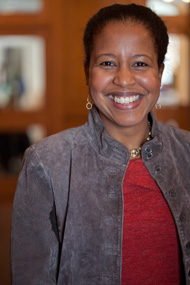Thank you Mr. Hill for your warm welcome. I’d also like to thank Bridget Choo, David Sanders for their invitation to address you all today, and to William Huang for his wonderfully adept assistance with the technology. I’m honored to speak to you all. As a Williston parent, I have come to know and appreciate all the good work that you do.
While preparing my remarks, I decided to give them a title: “There are Mountains beyond Mountains, So Put on your Traveling Shoes” and I hope it makes sense once I’m done speaking. Essentially I want to talk to you about some music and art that has touched me and that speak to some important points:
- The Expression of identity through art, storytelling and music
- The ways that artists try to convey their purpose and passions to other people through the stories they tell
- And the ways that sharing stories create awareness of ourselves as members of a larger community.
Much of what I say is inspired by a sentiment Dr. King expressed in his final speech, “I’ve Been to The Mountaintop,” which he delivered on April 3, 1968, a day before he was assassinated. The speech begins with Dr. King saying:
“And you know, if I were standing at the beginning of time, with the possibility of taking a kind of general and panoramic view of the whole of human history up to now, and the Almighty said to me, ‘Martin Luther King, which age would you like to live in?’ I would take my mental flight by Egypt and I would watch God’s children in their magnificent trek from the dark dungeons of Egypt through, or rather across the Red Sea, through the wilderness on toward the promised land. And in spite of its magnificence, I wouldn’t stop there…”
After traveling through history and identifying some of society’s greatest civilizations, he concludes, “strangely enough, I would turn to the Almighty, and say, ‘If you allow me to live just a few years in the second half of the 20th century, I will be happy.’” Dr. King recognized that this was an odd thing to say because the world was, as he put it, is “all messed up. Trouble is in the land; confusion all around.” But he recognized the potential for goodness and the beauty that existed in the place he stood, in that historical moment. I believe he was able to open himself up to the many challenges because he had a conviction of his potential to be an agent for social change and justice. Continue reading



